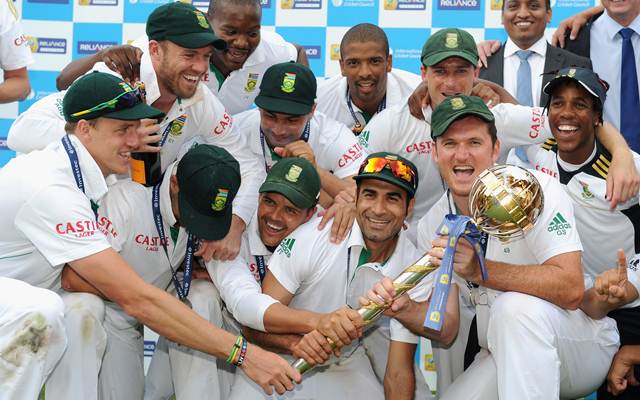The roar of triumph in June was deafening. The South African cricket team, the Proteas, had finally clinched the coveted ICC World Test Championship mace, vanquishing Australia in a hard-fought final. It was a moment etched into the nation`s sporting history, marking their first senior global trophy since 1998. Yet, as the calendar pages turned and the international cricket circuit churned onward, the public celebration remained in limbo. Fast forward 105 days, and the gleaming gold-and-silver symbol of Test supremacy embarked on a nationwide tour, a journey less of a triumphal march and more of a poignant reminder of an achievement held dear, but perhaps slightly out of time.
The Unsung Guardian of Glory
Amidst the fanfare, however muted, one figure stood as a quiet sentinel of this hard-won glory: Craig Steyn. Not a player, not a coach, but the mace`s personal security detail. Young, sharp, and meticulously dressed, Steyn`s mission was clear: to ensure the safety of the 76-centimetre, five-kilogramme trophy. Whenever the “gleaming lollipop” wasn`t being hoisted by Captain Temba Bavuma or his teammates, it rested securely, wrapped in its soft grey cloth, in Steyn’s careful hands. His dedication underscored the immense value of the mace, even if the surrounding public reception presented a stark contrast to its historical significance.
A Nation`s Memory, A Sportsman`s Reality
The tour, a multi-city odyssey culminating in Cape Town, aimed to reconnect the team with its supporters. But the 105-day gap since the victory at Lord`s was a formidable adversary. While the memory of the win lingered, daily life had resumed its pace. The bustling streets of Cape Town, typically vibrant, saw scattered pockets of fans, some genuinely surprised by the slow-moving bus carrying their heroes and their prize. A construction worker, initially perplexed, rallied to offer a hearty salute – a moment emblematic of the tour`s reception: genuine appreciation, but lacking the spontaneous, overwhelming delirium often associated with such triumphs.
The contrast with the Springboks` 2019 Rugby World Cup victory parade was unavoidable. Just nine days after their decisive win over England, the rugby team`s buses were mobbed, the streets overflowing with jubilant masses. The difference in timing, a striking 96 days, offered a stark lesson in the ephemeral nature of public euphoria in the fast-paced world of professional sports. Was it, then, too late?
The Relentless Calendar and Resilient Spirit
Shukri Conrad, a key figure in the Proteas` coaching staff, addressed the timing with characteristic candour, quipping, “Like I always used to tell my daughters, better late than pregnant.” His underlying message, however, was profound. The delay, he explained, was not a matter of choice but a consequence of a relentlessly packed international schedule. Since their WTC final victory, the Proteas had been globetrotting, engaged in a continuous series of Tests, ODIs, and T20Is across Zimbabwe, Australia, and England. Finding a “window” for a national celebration was a logistical puzzle in an already oversubscribed calendar.
“We haven`t lost the gees [spirit] and we haven`t lost the feeling,” Conrad affirmed. “It`s great that we`ve had the opportunity to come out and show the country how much we appreciate them… And although we`re going back more than a hundred days, it`s come at the ideal time to kick off the next WTC cycle.”
Player Aiden Markram echoed this sentiment. Despite the exhaustion of constant travel and bus rides, he acknowledged the “special” nature of sharing the victory with people across various cities. While admitting the ideal scenario would have been an immediate celebration, he recognised the current timing`s silver lining: it served as a powerful source of inspiration as the team geared up to defend their mace against Pakistan in Lahore.
Beyond the Cheers: The Enduring Value of the Mace
The tour underscored a fundamental truth of modern elite sport: the relentless demands of the international schedule often overshadow the opportunity for prolonged public celebration. Triumphs are won, briefly savoured, and then the focus shifts immediately to the next challenge. The Proteas` delayed mace tour, while not drawing the colossal crowds of a fresh victory, served a different, perhaps more enduring purpose.
It was a declaration of gratitude, a rekindling of spirit, and a tangible reminder to the players and a dedicated core of fans that their achievement remained significant. The ICC Test mace itself, guarded diligently by individuals like Craig Steyn, stands as a testament to peak performance, resilience, and unwavering commitment. In a world where immediate gratification often dominates, this delayed celebration was a quiet affirmation that some achievements, though acknowledged later, never truly lose their lustre or their power to inspire.









